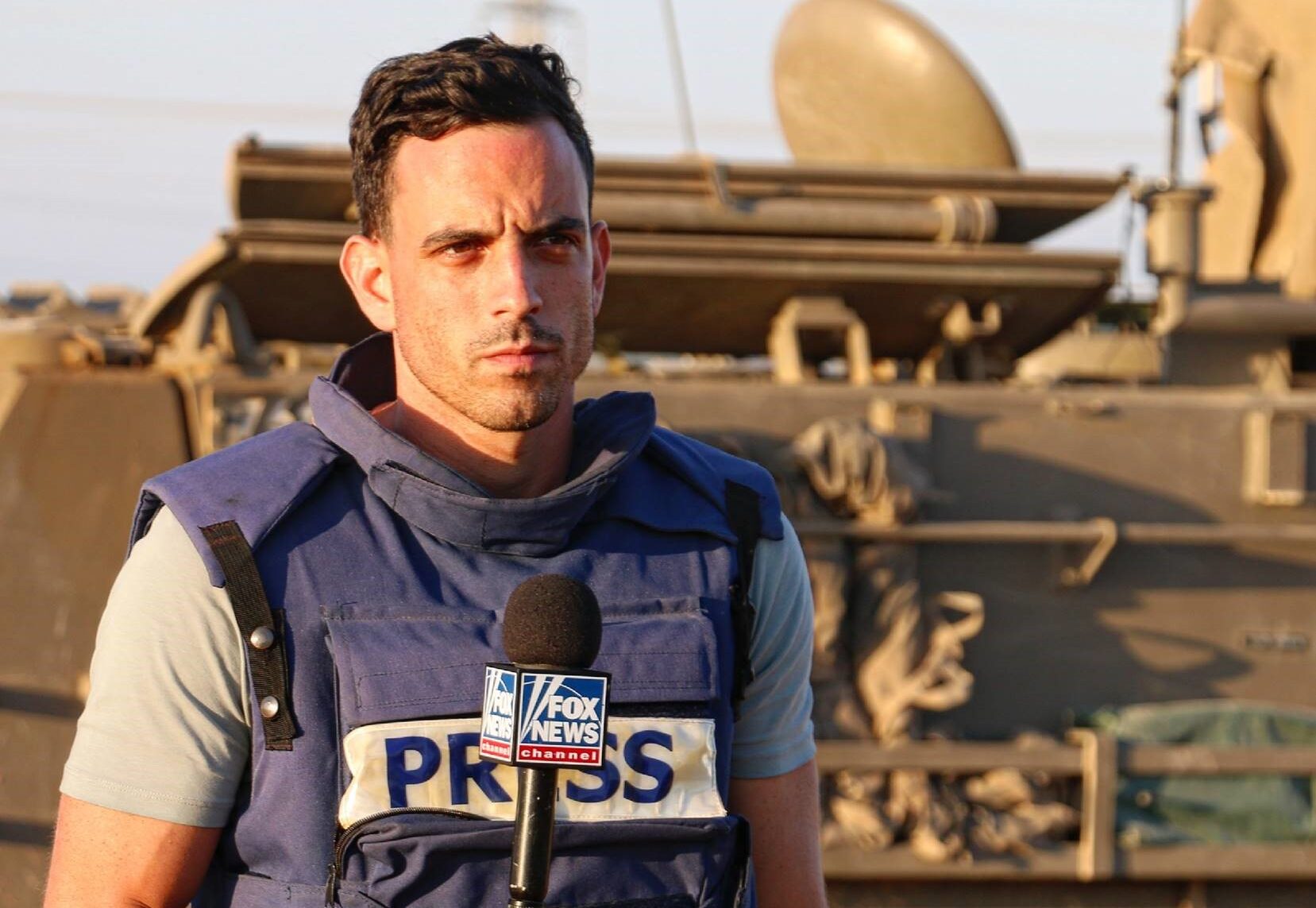Fox News Foreign Correspondent Trey Yingst on Afghanistan, Israel-Palestine, and Maintaining Your Mental Health While Covering War
 Fox News
Fox News
For Trey Yingst, the 27-year-old foreign correspondent covering the Middle East for Fox News, the hardest part about the job is not the massive amount of research that goes in to covering a different country every week. It’s returning home from a bloody conflict and trying to adjust.
Tel Aviv has been that home for Yingst for the last few years, he tells me on this week’s episode of The Interview podcast. He commutes from Tel Aviv to Fox’s Jerusalem bureau for work. From there, Yingst has been dispatched to cover conflict all over the Middle East: he has reported on the civil war and famine in Yemen, the 2020 explosion that rocked Beirut, the coronavirus crisis in Israel, war crimes in Syria, the dangerous aftermath of the killing of Iranian general Qasem Soleimani in Iraq.
Yingst was on the ground when rockets began flying back and forth between Gaza and Israel during the conflict in May, and his live shots were often interrupted by rocket fire — to dramatic effect. Yingst has continued to report on the crisis after rockets stopped flying.
While Yingst says being a foreign correspondent has always been his dream, he is wary of the toll that covering war takes on one’s mental health.
I think mental health and journalism is something that people don’t talk about a lot. It’s a taboo topic and I think it needs to be discussed more. It’s it’s something that I’ve personally had to take into my own hands. I have no shame in saying I really put a focus on mental health following a conflict, because oftentimes you are in the middle of a war, you are there on the worst day of someone’s life. We’ve been at funerals when parents have had to bury their children. We have stood next to piles of rubble as rescue workers have dug through trying to find survivors in the aftermath of a blast. We’ve been inside the coronavirus intensive care unit as people my age have have fought for their lives. I would be misleading to say it doesn’t take a toll because it does.
The dangerous locations that Yingst is often dispatched to call for him to sometimes travel with a serious security presence.
“If we’re in a place like Gaza, I don’t like to travel with a heavy crew in an armored car because then we stand out and I want to blend in there,” Yingst says. “There are places, though, where kidnappings and assassinations are so common you don’t have that option.”
“There have been times — in Baghdad last year after the death of Soleimani, there were targets on the backs of Americans. They wanted to kidnap or kill Americans in response. There was frustration among certain portions of the Iraqi people, particularly the Iranian-backed Iraqi Shia militias. And in that case, we are traveling with gunmen and armored vehicles to ensure that if we are ambushed, we can try to stay safe and get out of the situation.”
We also spoke about the U.S. withdrawal from Afghanistan, a move that is putting an end to an unpopular 20-year war but one that could leave Afghanistan on the brink of a civil war as Taliban forces seize control of more territory.
Download the full episode now, and subscribe to The Interview on Apple Podcasts or Spotify.
New: The Mediaite One-Sheet "Newsletter of Newsletters"
Your daily summary and analysis of what the many, many media newsletters are saying and reporting. Subscribe now!






Comments
↓ Scroll down for comments ↓